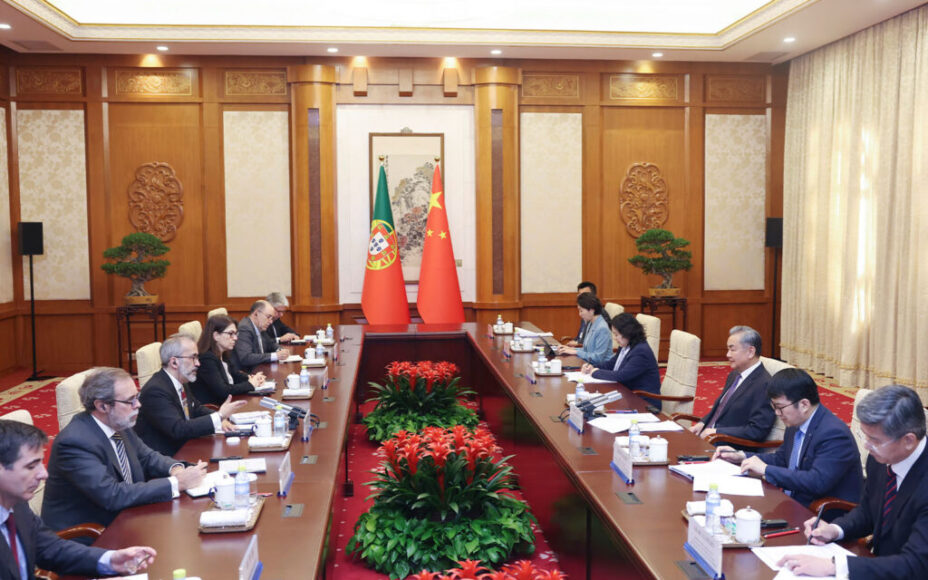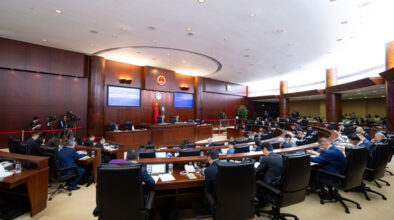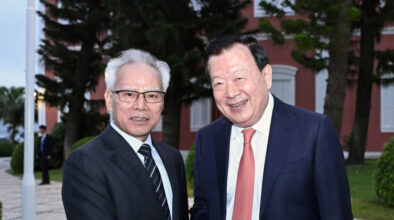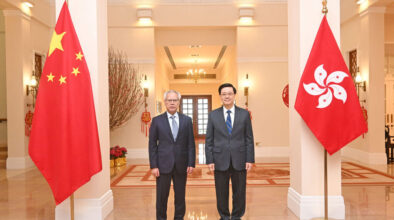Portugal’s Minister of State and Foreign Affairs, Paulo Rangel, met with his Chinese counterpart Wang Yi in Beijing in March to discuss deepening economic and political cooperation.
His four-day visit to the country – which included a stop in Macao after attending the Boao Forum to Asia Annual Conference 2025, in Hainan Province – was the first official trip to China by a member of the Portuguese government over five years.
While there, Rangel praised the enduring diplomatic ties between China and Portugal and highlighted Macao’s role as a vital bridge in broader Sino-Lusophone relations.
Portugal and China celebrated 45 years of formal diplomatic relations in 2024, and this year marks the 20th anniversary of their comprehensive strategic partnership.
However, Rangel emphasised that the countries’ connection ran much deeper. “The relationship with China is 500 years old,” he told the media in Beijing, referencing Macao’s long history with Portugal. “Over the last 45 years, it has seen great development, deepening and enrichment.”
During Rangel’s discussions with member of the Political Bureau of the CPC Central Committee and Minister of Foreign Affairs Wang Yi, both sides reaffirmed their commitment to mutual cooperation in trade, investment and green energy. Rangel expressed Portugal’s keen interest in expanding economic engagement across multiple sectors, including technology, finance and healthcare.
Wang, in turn, voiced his hope that Portugal would “play an active role” fostering constructive relations between China and the European Union (EU). He underscored China’s readiness to collaborate with Portugal in building a stable, dynamic partnership based on mutual trust and shared achievements, reinforcing its significance within the broader EU-China framework.
Wang and Rangel discussed Macao’s ongoing role as a bridge between China andPortuguese-speaking countries (PSCs), with both acknowledging the Special Administrative Region (SAR)’s importance in cultivating cultural and economic exchanges. Rangel said he was pleased to see the success of the ‘One Country, Two Systems’ policy, while Wang described Macao’s peaceful return to the motherland in 1999 as a model for resolving historical issues through diplomatic dialogue.
‘Invest and thrive’
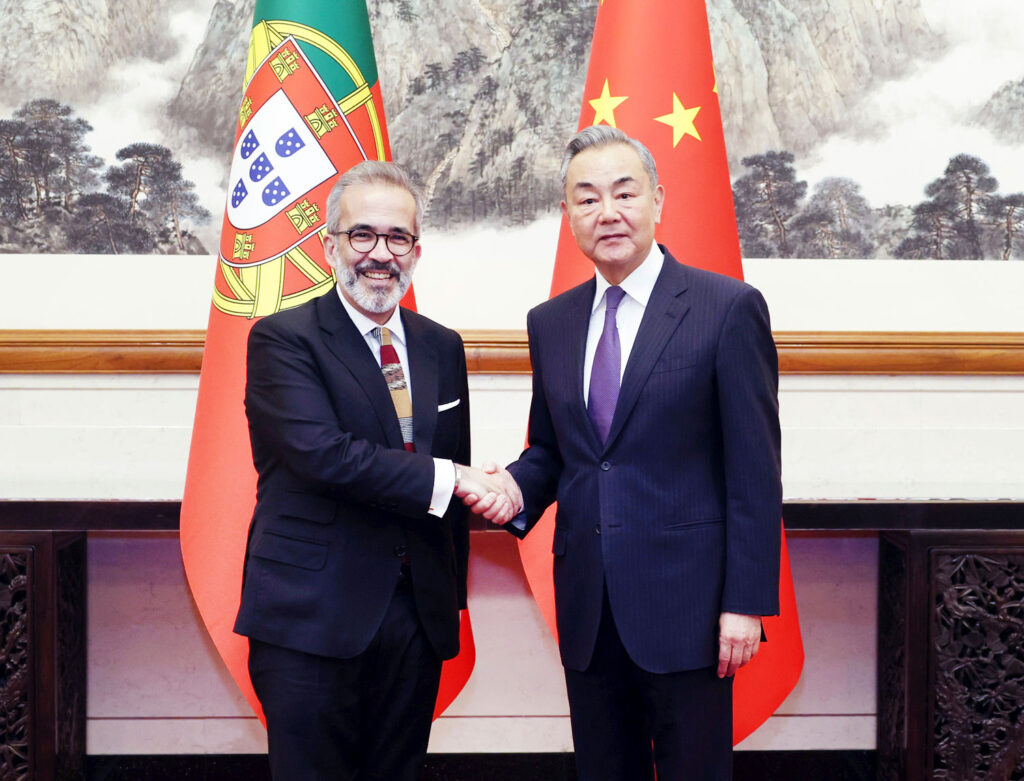
China has become the fourth-largest foreign investor in Portugal over the past decade, with state and private investments topping US$12 billion (more than 96.3 billion patacas) across a wide variety of sectors. During his meeting with Wang, Rangel extended an invitation to more Chinese companies to “invest and thrive in Portugal”, according to a statement released by China’s Ministry of Foreign Affairs.
At the same meeting, Wang emphasised the traditions of “mutual respect and support” between the two countries. He also noted that Portugal was one of the European Union countries receiving the most Chinese investment per capita.
Multilateral trade between China and PSCs collectively topped US$225 billion in 2024, with bilateral trade between China and Portugal alone coming in at US$ 9.2 billion, according to figures released by Forum Macao.
Languages of the future
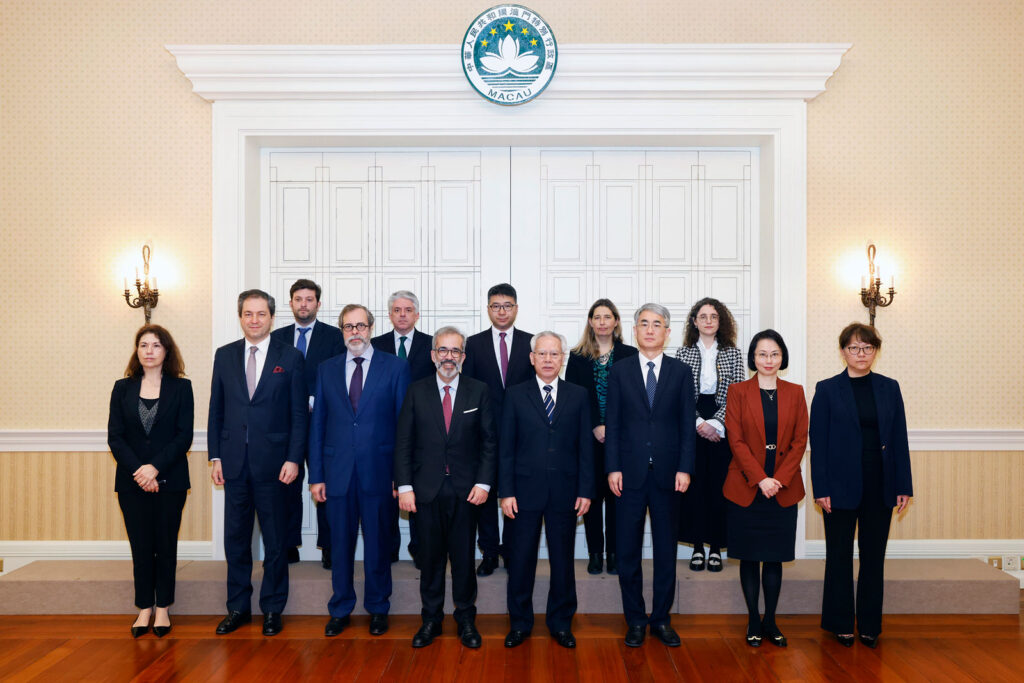
While in the capital, Rangel delivered a lecture to more than 100 students at Beijing Foreign Studies University (known as Beiwai) – encouraging them to consider learning Portuguese. It is the most spoken language in the southern hemisphere, he pointed out, largely thanks to Brazil’s population of more than than 211 million people. Rangel predicted that there would be more than 600 million Portuguese speakers in the world by 2100.
“Portugal is an ancient country, but Portuguese is the language of the future,” he told the students.
Beiwai is home to China’s first Portuguese language degree programme, established in 1961. It remained the only one in the country for decades, according to Portuguese state media, though the past 25 years have seen the Iberian language surge in popularity due to expanding relations between China and PSCs. Today there are more than 50 universities in the mainland offering Portuguese courses.
Rangel shared with the students his three favorite Portuguese writers: Luís de Camões, Fernando Pessoa and Father António Vieira. Camões, of course, is believed to have lived in Macao for a period of time in the mid-1500s (and it’s understood he wrote part of his epic poem, Os Lusíadas, here). Pessoa’s work, meanwhile, is part of Macao Cultural Affairs Bureau project to translate Portuguese literature into Chinese.
Rangel also urged the Chinese authorities to further promote Chinese studies overseas, particularly in PSCs.
Meeting in Macao
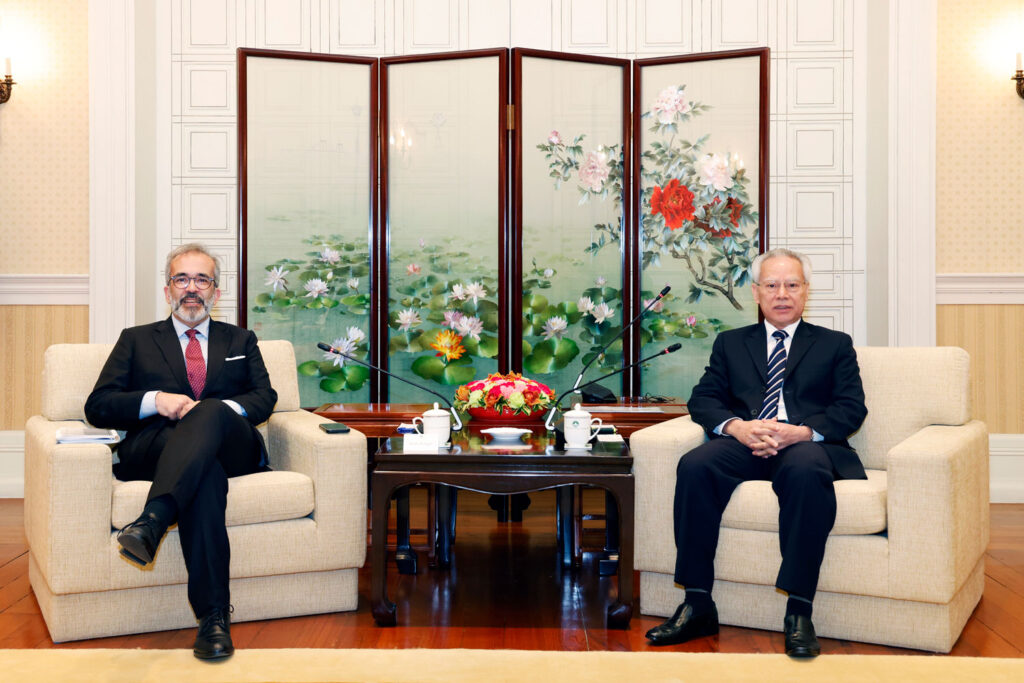
Chief Executive Sam Hou Fai and a number of top-level Macao officials met with Rangel at Government Headquarters on 28 March, the final day of the Portuguese foreign minister’s visit to the country.
It was the first time Sam had received a foreign affairs minister since taking office in December, reflecting the strong relationship Macao and Portugal continued to share thanks to their deep historical connections, the chief executive noted.
Sam and Rangel discussed cooperation in the judicial, economic and educational fields, as well as developments being rolled out in the Guangdong-Macao In-Depth Cooperation Zone in Hengqin. Sam also described how, under the ‘One Country, Two Systems’ principle, Macao “continued to retain continental European legal traditions, traditional culture and customs”.
Sam during the meeting also said to Rangel that he looked forward to visiting Portugal in the near future.
Afterwards, at a reception hosted by the local Portuguese Consulate-General, Rangel described his meeting with Sam Hou Fai as “very productive”. Rangel also reiterated his belief that improving Chinese language education in Portugal was important for the European country’s future.
On the subject of Portuguese studies in Macao, Rangel expressed satisfaction with the large numbers of people learning the language from the Chinese community. “That is something that can only foster good relations,” he said.
Significantly, Rangel announced that Portugal’s government would increase financial support to the Portuguese School of Macau (known by its Portuguese initials, EPM) – which the foreign minister visited while in the SAR.
The Portuguese state holds 51 percent of capital in the EPM Foundation, and Rangel described the school as playing a fundamental role for Portugal in Macao.
The Portuguese Foreign Minister’s visit reinforced Portugal’s commitment to strengthening economic and cultural cooperation with China, with Macao serving as a key link in those efforts.
As the SAR continues to foster connections with the Lusophone world, the enhanced collaboration signals a future of greater engagement and mutual benefit.
